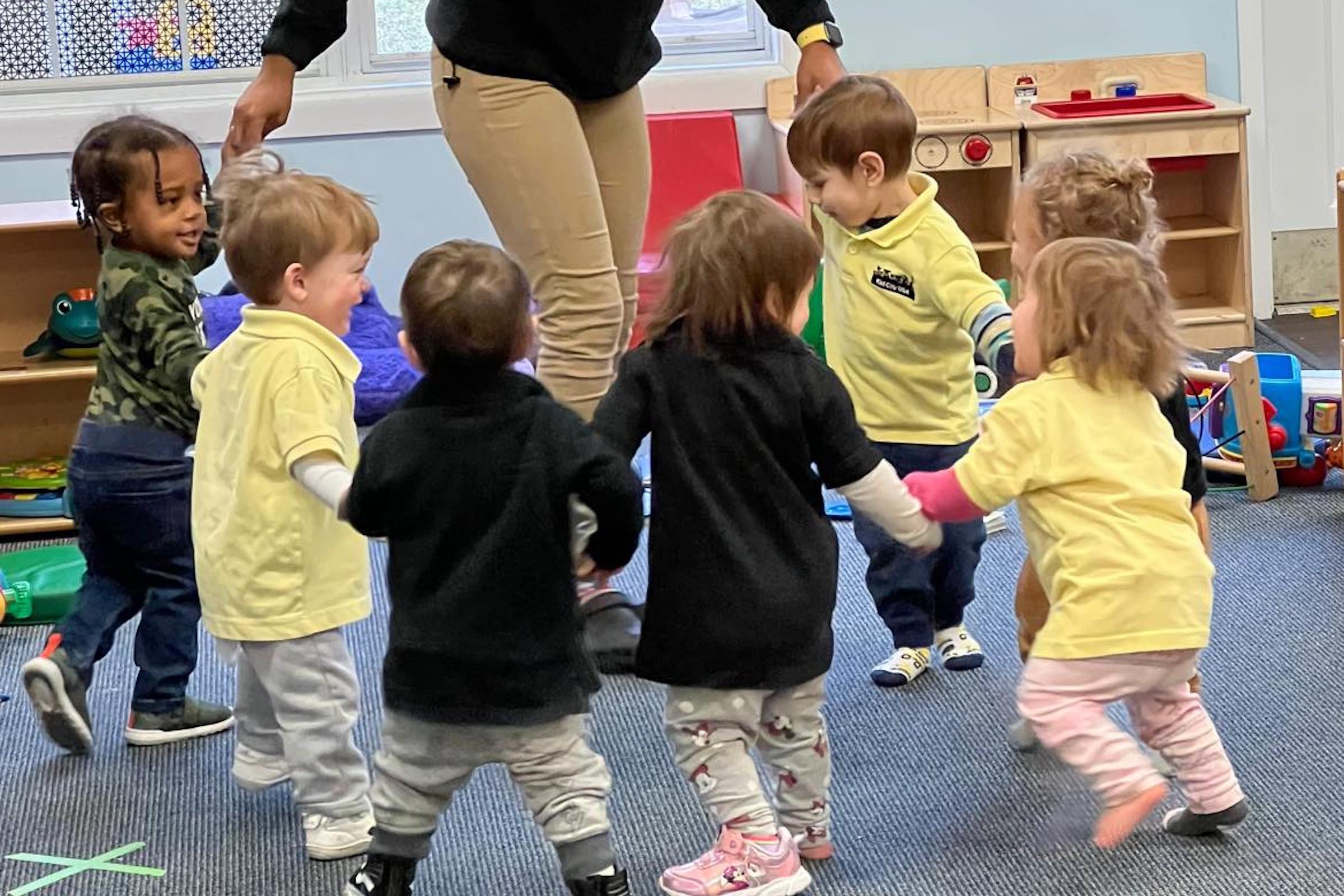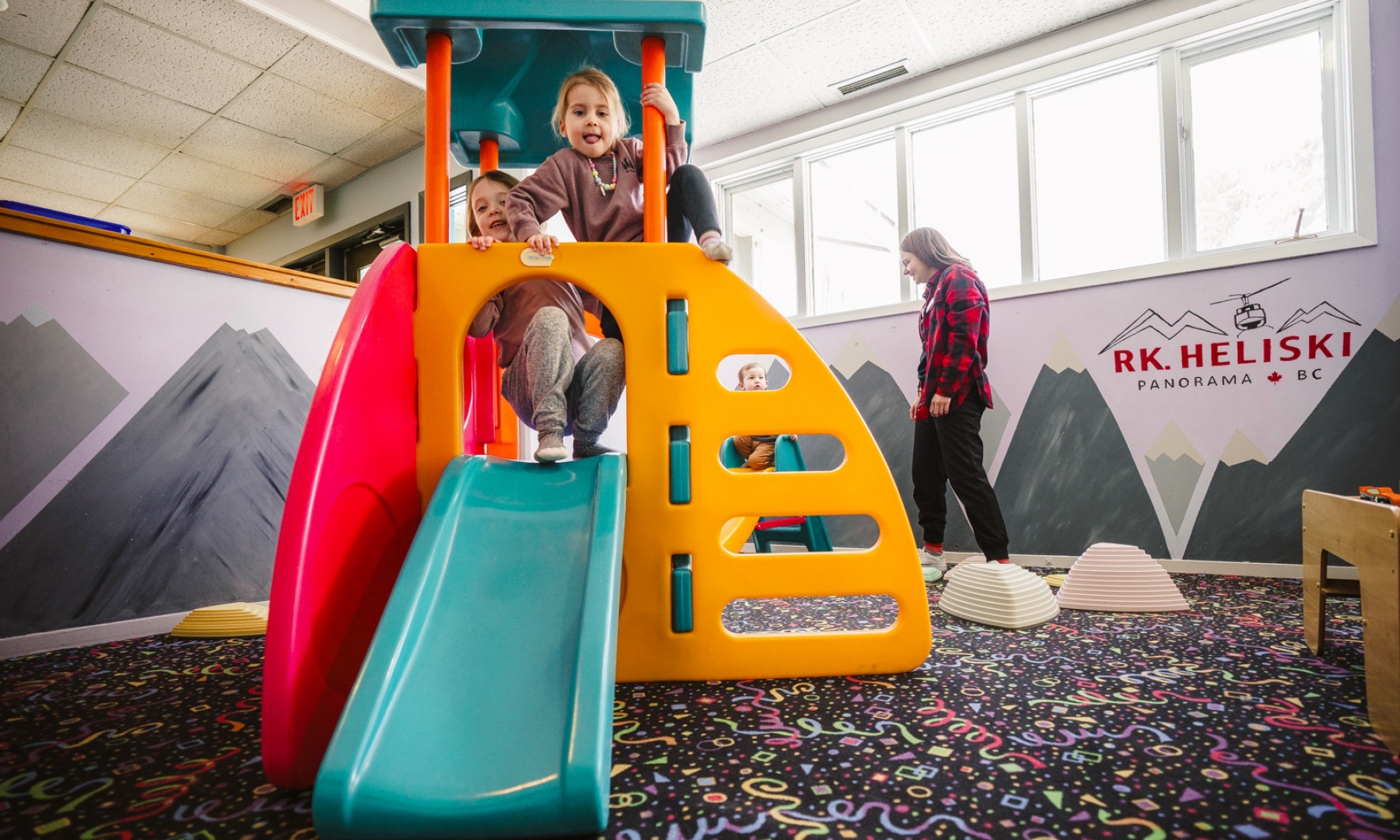How to Choose the Best Daycare for Infants Near Me: A Parent's Guide to Quality Treatment
How to Choose the Best Daycare for Infants Near Me: A Parent's Guide to Quality Treatment
Blog Article
Understanding the Relevance of Daycare for Your Young child's Social Development and Understanding Experiences Through Engaging Tasks
The value of childcare in shaping a kid's social development and understanding can not be overstated, as it provides an organized setting filled with engaging activities that are crucial for early growth. As we explore the multifaceted advantages of daycare, one have to take into consideration exactly how these fundamental experiences affect a child's future social interactions and total advancement.

Advantages of Social Interaction
Social interaction plays a critical role in the developing trajectory of young children, functioning as a foundation for essential social skills. Involving with peers permits young children to exercise communication, learn to share their feelings, and create empathy. Via shared play and participation, they start to comprehend social norms, such as taking turns and sharing, which are vital parts of effective interpersonal connections.
Additionally, social interactions contribute to cognitive advancement. As kids connect with their peers, they boost their language skills, increase their vocabulary, and boost their capability to verbalize feelings and thoughts. This exchange of ideas cultivates important thinking, as kids discover to discuss, fix issues, and navigate disputes.
Furthermore, social interaction advertises emotional law. Exposure to various social situations helps toddlers recognize and handle their feelings, inevitably resulting in higher durability and flexibility. The capacity to form relationships and attachments also boosts their sense of belonging and self-esteem, which are crucial for total health.
Importance of Involving Tasks
Engaging activities are vital for cultivating a revitalizing atmosphere that boosts young children' social advancement. These activities not only captivate young youngsters's focus yet likewise advertise energetic participation, allowing them to discover their surroundings creatively. With play-based discovering, kids establish essential skills such as analytical, teamwork, and compassion, every one of which are crucial for developing healthy and balanced relationships with peers.
Getting involved in engaging activities, such as team video games, art projects, and interactive storytelling, urges young children to share their ideas and sensations. This expression is crucial for psychological intelligence and aids them comprehend the viewpoints of others. When kids engage in these tasks together, they find out to negotiate duties, share resources, and work together, which are basic facets of social interaction.
Additionally, a well-structured atmosphere that includes varied and revitalizing activities assists in maintaining kids motivated and focused. This inspiration promotes a love for learning and exploration, laying the foundation for future educational experiences. Ultimately, involving tasks in day care settings are pivotal in forming social skills, preparing kids for effective communications beyond the class, and supporting their overall advancement throughout these developmental years.
Developing Interaction Skills
Reliable interaction skills are critical for toddlers as they navigate their early social interactions. In a day care setup, children are exposed to diverse social circumstances that urge verbal and non-verbal interaction. Involving in discussions with peers and caretakers fosters language growth, making it possible for toddlers to reveal their requirements, thoughts, and feelings more effectively.

Furthermore, daycare settings provide possibilities for kids to observe and simulate interaction styles of their peers and grownups. This observational learning is essential as youngsters pick up on social hints, tone, and body movement, which are necessary parts of reliable interaction.
Cultivating Self-reliance and Self-confidence
As kids fine-tune their communication abilities, they all at once begin to discover their freedom and construct self-confidence in social settings (daycare near me for infants). Daycare supplies an organized environment where children can engage in numerous tasks that encourage autonomy. From selecting their own activities to getting involved in article source team tasks, these experiences empower toddlers to choose and express themselves
In a day care setting, youngsters are usually provided with chances to solve problems independently, whether it's finding out exactly how to share playthings or fixing conflicts with peers. This cultivates essential reasoning and promotes self-sufficiency. Furthermore, caregivers sustain this growth by giving favorable reinforcement and advice, assisting children to browse social interactions with self-confidence.

Group activities, such as cooperative games or collaborative art tasks, facilitate teamwork and teach young children the importance of interacting. Through these interactions, children learn to connect their sensations and thoughts, better boosting their self-esteem and social abilities.
Ultimately, fostering freedom and confidence in daycare not just prepares young children for future social atmospheres yet additionally prepares for a durable way of thinking, equipping them with vital life abilities as they continue to expand and discover.
Structure Lifelong Learning Structures
A solid foundation for long-lasting knowing is crucial for toddlers, as their early experiences form their attitudes in the direction of education and learning and inquisitiveness. Daycare environments play an essential role in this developing phase by supplying structured opportunities for exploration and involvement. Involving activities, such as group play, arts and crafts, and interactive storytelling, stimulate cognitive advancement while motivating social communication.
Via these experiences, kids discover essential skills such as analytic, interaction, and collaboration. They are presented to the original source the principle of learning as a pleasurable, joint process as opposed to a job, which cultivates a positive perspective in the direction of education. Moreover, exposure to varied point of views and peer communications in childcare settings boosts emotional intelligence, promoting empathy and resilience.
Caregivers and teachers additionally contribute substantially to developing this structure by modeling inquisitiveness and enthusiasm for discovering. By encouraging questions and helping with discussions, they develop a setting where children feel risk-free to reveal themselves and check out originalities. Inevitably, the mix of supportive connections and engaging activities in daycare settings prepares for a lifelong love of learning, gearing up kids with the skills and way of thinking needed for future academic and personal success.
Conclusion

The importance of childcare in shaping a kid's social growth and knowing can not be overstated, as it uses an organized atmosphere loaded with interesting activities that are essential for early growth.Social communication plays an essential duty in the developmental trajectory of young children, offering as a structure for necessary social skills. When young children engage in these tasks with each other, they go to my blog learn to work out duties, share sources, and team up, which are basic aspects of social interaction.
Inevitably, engaging activities in daycare settings are critical in shaping social abilities, preparing kids for effective communications past the class, and nurturing their total growth during these formative years.
Ultimately, the benefits of engaging tasks in childcare settings play a significant function in preparing toddlers for future social communications and difficulties. toddler daycare near me.
Report this page